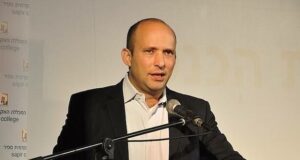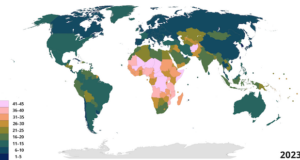The United Nations is being criticized by the United States after the General Assembly’s quick approval – without a vote – of Chilean former government official who has been a friend and defender of several of the Western Hemisphere’s most radical and despotic marxist dictators.
Numerous human rights groups also expressed dismay about the speed of the process to install former Chilean President Michelle Bachelet as the U.N. high commissioner for human rights for the next four years. There was just one month between the job being advertised (June 11) and the deadline for applications (July 11), and less than two months between that deadline and the start date of September 1.
U.N. Secretary-General Antonio Guterres announced the nomination last week, and on Friday, the General Assembly endorsed the decision, without debate and without a vote.
“May I take it that the General Assembly wishes to approve the proposal …?” General Assembly president Miroslav Laják asked the gathering in New York.
After briefly looking around the chamber, he added, “It is so decided,” and banged his gavel.
After the decision had been confirmed, delegates from various regional and other groups offered comments.
U.S. Delegate Stefanie Amadeo said the appointment comes at an important time, given “the failures of the Human Rights Council to address some of the most egregious human rights abuses of our day” – which prompted the recent U.S. withdrawal.
“It is incumbent on the secretary-general’s choice, Ms. Bachelet, to avoid the failures of the U.N. human rights system in the past, particularly the Human Rights Council’s consistent failure to address extreme human rights abuses in the Western Hemisphere, in Venezuela and Cuba in particular,” she said.
As reported earlier, Bachelet’s nominated brought some criticism over her evident sympathies with the regimes in Havana and Caracas.
Both countries are themselves members of the Human Rights Council, and neither has ever been the subject of a critical HRC resolution even while their populations suffered under brutal regimes. Data compiled by the NGO Human Rights Voices show that countries with poor rights records that have not faced a single critical HRC resolution also include China, Russia, Pakistan and Saudi Arabia. Of the resolutions it has passed, more than one-quarter targeted Israel.
Responding to Amadeo’s remarks, Cuban representative Ana Silvia Rodríguez Abascal accused the U.S. of using Bachelet’s nomination to exercise its “pathological tendency” to “twist reality”
Rodríguez Abascal cited a range of issues in the U.S. including gun violence, the marginalization of migrants, detention of terrorists, and proposals “to build walls against neighboring countries”
“They have no moral authority to judge my country,” she said.
 Metro Voice News Celebrating Faith, Family & Community
Metro Voice News Celebrating Faith, Family & Community 







